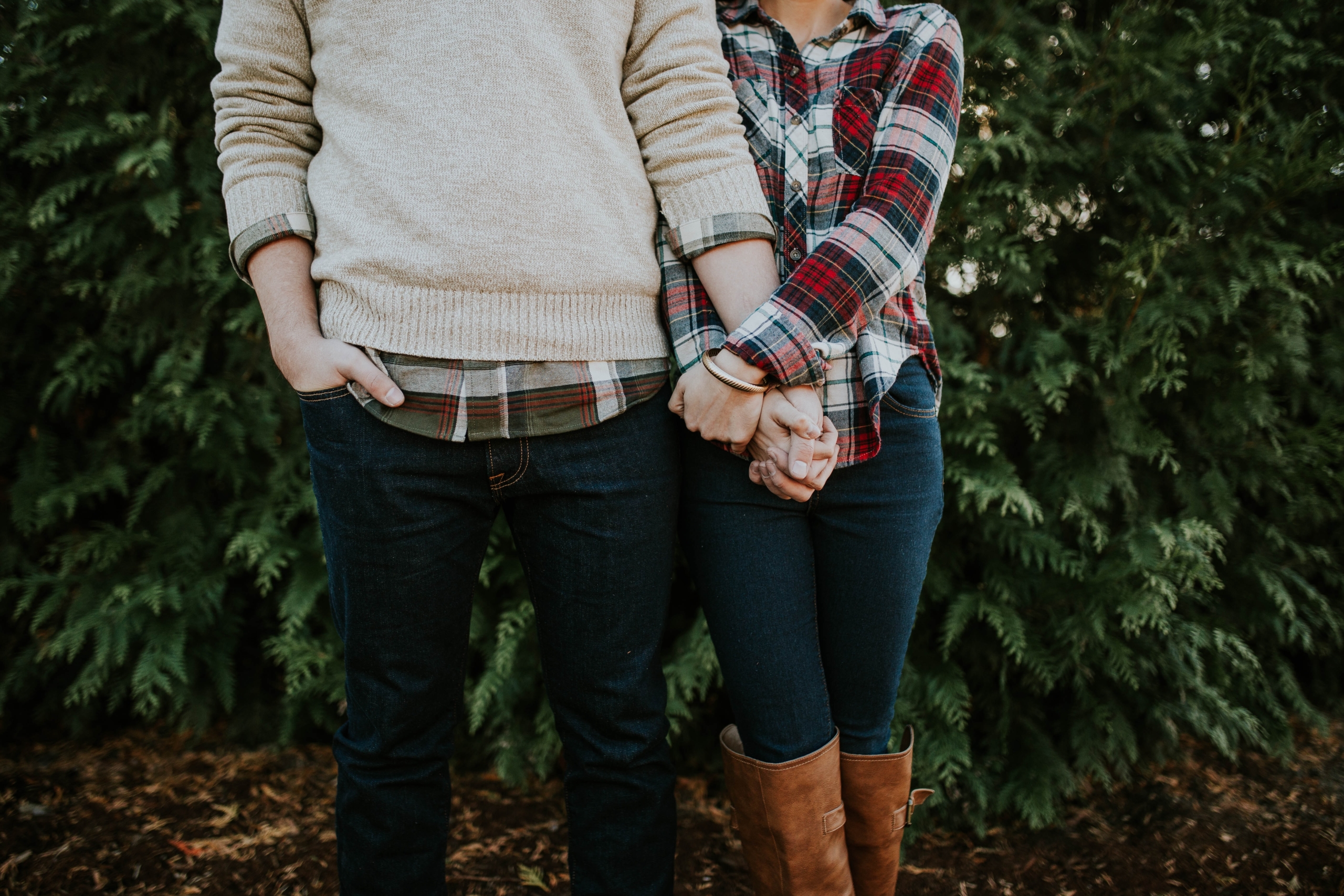Is your relationship one-sided? Does it feel like you’re doing all the heavy lifting and getting very little in return? You may be in a codependent relationship.
What is Codependency?
We want to feel like we can rely on our partners. We want to know that they’ll be there for us when we need them. But when we start looking to them to take care of all our emotional needs, it’s no longer a good thing. Codependency is an extreme imbalance in the relationship. One person has a significantly higher amount of power and control.
Simply put, codependence is when one person has an extreme need to be needed by another person. When we think of codependency in romantic relationships it’s often reduced to “clinginess”. But codependent relationships are more serious than a “needy” partner.
A codependent partner will plan their entire life around pleasing the other person. They enable unhealthy behavior and fit the role of a martyr. Codependency prevents a real connection and limits both people from being able to function on their own, outside of the relationship. The codependent person connects their entire existence to the relationship. Without it, they would feel worthless. Therefore, they’re motivated to hold on to the relationship at any cost.
Codependency vs Interdependency
Interdependency
Codependency should not be confused with interdependency, which is a healthy give and take. In an interdependent relationship, two people rely on each other for love and support. As a result, both people feel valued. While the relationship takes priority, each person has sources of happiness outside of the relationship. Each person has hobbies and interests that they engage in, separate from their partner. People in dependent relationships maintain other healthy relationships with friends and family. Each person is able to communicate their needs and desires so that the relationship is beneficial for them.
Codependency
Codependency, on the other hand, is where one person gives and gives without much in return. Their existence appears to be intertwined with meeting the needs of their partner. And therefore they’re not able to be their own person. While helping out your partner, and trying to make their life easier is a good thing, it can be taken to the extreme. Codependent behavior involves enabling. In a codependent dynamic one person’s needs come way before the other’s. And over time, the partner with codependent behavior can lose sight of who they are.
Where does codependency come from?
Codependency is a learned behavior developed in our early years. Often it comes from growing up in a dysfunctional family. Codependent behavior is usually a result of having a parent with addiction, mental illness, or is neglectful or abusive. Maybe the only way you could connect with your parent was to bury your own needs. Codependency can also be a way of coping with a traumatic event.
Is Codependency Normal or Healthy?
Codependency can be found in any type of relationship. In addition to a romantic partner, codependency can exist with a friend, colleague, or family member. Most typically it is found in relationships where one person has a substance abuse problem.
No matter what type of relationship it is, codependency is not healthy. Any dynamic where one person relies so heavily on the other is less of a relationship and is more resemblant to caretaking. It is never healthy to base your sense of worth on how much you are needed. Codependency is unhealthy because you’re denying your own needs and forgoing your own standards. Codependency can also mean you’re enabling and even supporting the destructive behavior of the other person (addiction or emotional/physical abuse).
A healthy, functioning relationship should have a close-to-equal partnership. The goal is to have a mutual back and forth where each person gives what the other needs.
Why codependency is problematic for a relationship
Why is tending to someone’s needs a bad thing? On the surface, it isn’t. Attention and support in the right amount is a wonderful thing and paramount in any strong relationship. The level of care becomes an issue when people fall into distinct roles of “giver” and “taker”.
The following are relationship problems codependency causes:
- Unresolved conflict
- Increased likelihood of emotional abuse
- Partner’s unhealthy habits are enabled
- No room for either person to grow
- Lack of communication
Signs of a Codependent Relationship
The following are 9 signs of codependency in relationships:
1. You are a people pleaser
It’s hard for you to say no. This is true not just with your partner, but with most other people in your life. You have a hard time denying someone something and would hate for someone to be disappointed with you. Therefore, you take on a lot of things you’d rather not do. When it comes to communication you have a hard time taking a stance, not wanting to say something that could upset someone.
2. You don’t take time for yourself
You find it hard to do anything that’s for you, even when you’re partner is not around. It feels wrong and uncomfortable to be apart from them. It’s hard for you to enjoy your hobbies and social time because you feel guilty when something doesn’t revolve around your partner. Self-care makes you feel selfish.
3. You want to fix your partner’s problems
You feel like it is your job to make sure they are happy, so you’re constantly working to remove anything negative from their life. It may also feel like it’s your responsibility to “fix” your partner because you see that changing will benefit them.
4. You need acknowledgment
You need to be recognized for your efforts. You see yourself as the one taking care of not only your partner but your relationship and you want to be praised for that.
5. You avoid conflict at all costs
This is a form of people pleasing. You see it as your job to make your partner happy. Differing opinions and difficult conversations aren’t part of your role. You think that any conflict will lead to your partner leaving you.
6. You lack confidence in yourself
When it comes to your own abilities, you have a negative outlook. You look to your partner to build up your self esteem by doing things for them. You have a hard time being assertive, and you might feel unworthy. Any self-worth you have comes from what you do instead of who you are.
7. You have a fear of being abandoned
Do you tolerate unfair treatment so that you won’t be alone? Would you rather stay in an unfulfilling relationship than be alone? Abandonment issues are often developed in early childhood.
8. You don’t trust yourself
It’s hard for you to make decisions because you’re always questioning yourself. You look to others for answers and follow their lead.
9. You rely on your partner to feel happy
Your happiness is embedded within your relationship. You have a hard time feeling any joy when you’re not with your partner or if your partner is unhappy.
Do you recognize this behavior in yourself or your partner? If so, you may be in a codependent relationship
What’s Next?
Codependency in relationships is a dysfunctional dynamic. Ultimately, it’s unhelpful to everyone involved. The good news is that codependent relationships can be saved. As long as there is serious effort to change from all parties.
Healing Codependency in Relationships
Here are some ways to mend the relationship:
1. Work on interdependency
Interdependency means there is compromise. Support, encouragement, and help go both ways.
2. Build other relationships
Try to decrease dependency by spreading your attention to other people in your life.
3. Take care of you
It is not at all selfish to do things for you. When you take care of your own needs, you can offer more to others. Not to mention, you will be happier!
4. Reclaim your self-confidence
Low self-esteem that’s connected to your partner is really the root of codependency. Stop criticizing yourself and take the time to review what your values are.
5. Learn to create boundaries
Learn to set physical, emotional, and mental boundaries with your partner. Set limits to what you will accept from your partner. If your partner needs to make a change, accept that you cannot do that for them. Hold them accountable.
6. Get support through couples therapy
Recognizing that change is necessary and then taking action is not easy. Seeking outside help is a sign of strength. It also means that you are dedicated to healing codependency. The Couples Center has therapists who can work with you to build a healthier and happier partnership.
How to Avoid Codependency in Relationships
Partnerships can start off as interdependent, mutual relationships but over time they can turn into codependent ones.
If you’re not currently in a codependent relationship here’s how you can avoid one in the future:
- Know the difference between prioritizing your relationship and making your relationship your everything.
- Know the difference between enabling and helping.
- Make time for you.
- Allow time for them.
- Don’t let conflict build.
Above all, remember that having independence makes you a better partner. Don’t lose sight of all that is good in you. It was there before you were in a relationship. And don’t forget, a partner is meant to enhance what’s already good in your life, not provide the things that were missing.

 Call Us Now
Call Us Now



